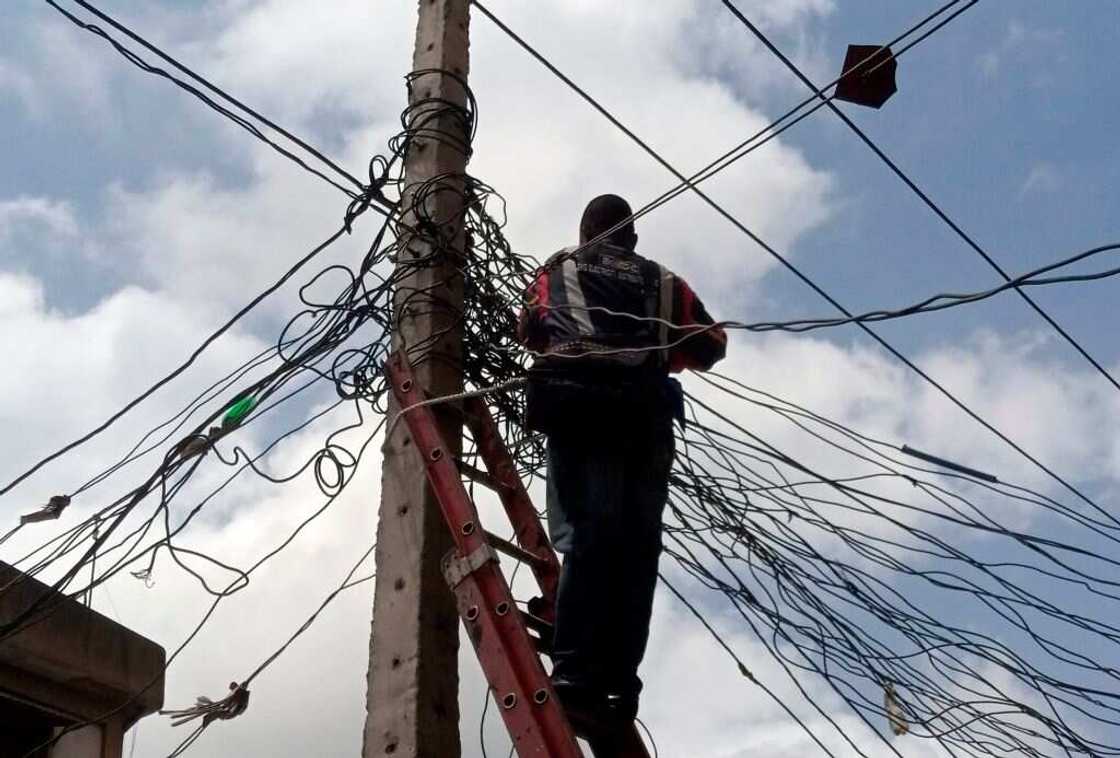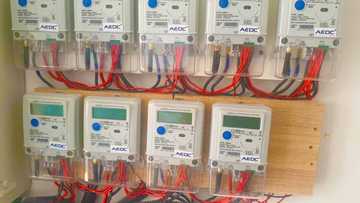Updated: DisCos Alert Nigerians on Electricity Tariff Increase from July 1, Advice on Saving Cost
- Electricity Distribution Companies are set to implement new electricity tariffs from July 1, 2023, to reflect the current state of the economy
- Customers have been advised to prepare for the adjustment and buy in bulk before the new changes come into effect
- It is expected that the federal government will from July 1 stop the payment of electricity subsidy, which is set to increase tariff by 40%
PAY ATTENTION: Click “See First” under the “Following” tab to see Legit.ng News on your Facebook News Feed!
According to multiple reports, Electricity Distribution Companies have announced that Nigerians will pay more for electricity starting Saturday, July 1, 2023.
The companies explained that the fluctuating exchange rate influenced the tariff increase.

Source: Getty Images
According to BusinessDay Abuja Electricity Distribution Company, in a message to its customers in Federal Capital Territory, Niger, Kogi and Nasarawa states, said:
“Effective July 1st 2023, please be informed that there will be an upward review to the electricity tariff influenced by the fluctuating exchange rate.

Read also
FX Rates: Aso Rock affected as Abuja DisCo moves to hike tariff from July 1, blames fluctuating exchange rate
PAY ATTENTION: Share your outstanding story with our editors! Please reach us through info@corp.legit.ng!
“Under the MYTO 2022 guidelines, the previously set exchange rate of N441/$1 may now be revised to approximately N750/$1, which will have an impact on the tariffs associated with your electricity consumption."
However, the AEDC has come out to deny the statement.
AEDC said:
“Please ignore the information circulating in the media about the review of electricity tariffs. We want to inform you that we have not received any approval for such increases, and we apologize for any inconvenience caused.”
More announcement
In another report, Dailytrust revealed that a similar message was sent out by Ikeja Electricity Distribution Company (IKEDC) with an explanation that for customers within bands B and C, with supply hours ranging from 12 to 16 per day, the new base tariff is expected to be N100 per kWh.
Message reads:
"Dear valued customers, we would like to inform you that electricity tariffs are scheduled to increase starting from July 1st due to fluctuations in the exchange rate.
"As a result, we are looking at adjusting our base tariff to N100 per kWh for Band C, which corresponds to a supply duration of 12 to 16 hours per day."
“If you have a prepaid meter, buying bulk energy units for your home or office before the end of the month may help you make some savings before you have to buy at the new rate."
FG plans 40% electricity tariff hike
Meanwhile, in another report, the National Bureau of Statistics has revealed that Nigerians spent over N247 billion on electricity in the first quarter of 2023.
It was also revealed that the number of electricity customers has increased amid plans by the federal government to increase tariffs from July.

Read also
Access Bank sends message on system maintenance, suspends transactions on all channels for 5 hours
The federal government pays over N500 billion in subsidy monthly for electricity consumed by Nigerians.
Source: Legit.ng



